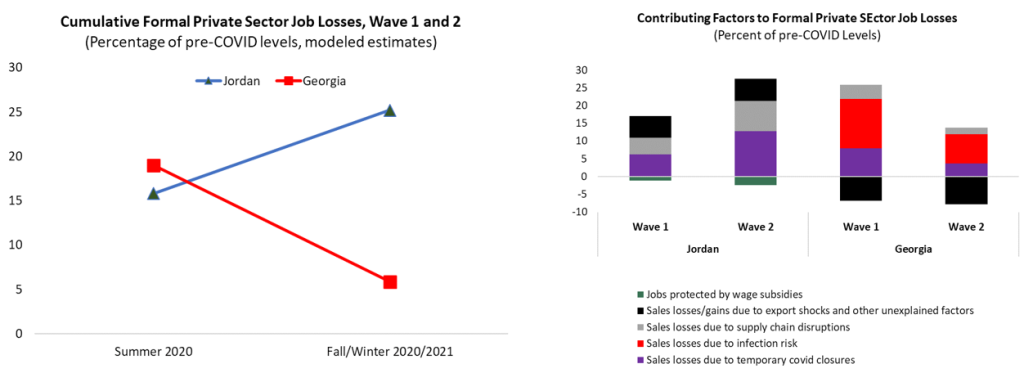Economic shocks are a major threat to poverty reduction and shared prosperity. The Poverty and Shared Prosperity Report 2020 highlighted the negative impact of climate change and fragility and conflict on the global efforts to reduce poverty and grow prosperity, noting that up to 132 million people could be pushed into poverty by 2030 as a result of climate change impacts on their lives and livelihoods. Poor people are the most vulnerable to the negative impacts of shocks because of where they live and work and their inability to self-insure. Those affected often experience losses that affect not only their incomes today but also their productive capacity in the future.
That’s why we need to address vulnerability to poverty if we are to make sustained progress in raising living standards for the less well-off. We must do this by creating mechanisms that allow the poor and vulnerable to build resilience, and by strengthening safety nets.
Tools to improve crisis response in the future
Technology can help make many shocks and crises, like the COVID-19 pandemic, and their impacts more predictable. For instance, new data and technology are increasingly capable of modeling extreme climate events and tracking their impacts on households when they do occur. Similarly, over the last few years methods to assess risks and measure household vulnerability and poverty have greatly improved. Vulnerability analysis tools, combined with satellite data, can be used to identify how many people will be in need during a crisis and where they are located. Based on this information, local authorities will be able to assess whether vulnerable households and individuals have access to existing safety nets. So, we can in fact start to assess the preparedness of available social protection systems before crisis strikes.
Following the financial crisis in 2007-08, it became a common practice to “stress test” commercial banks to gauge their ability to withstand systemic financial shocks. Using this approach, the World Bank has convened a multi-disciplinary team that launched a tool to “stress test” social protection systems, by comparing the extend and timing of needs in the aftermath of shocks, with the scalability and adaptiveness of existing systems. The tool’s version 1 can be found here, with future updates issued based on lessons from country applications.
This rapid appraisal tool puts forward a number of ways to simulate the magnitude of potential impact on household welfare (and subsequent needs) of different shocks of varying intensities using household survey and historical shock data. It helps to identify those who became poor or vulnerable to poverty following a shock, as shown on Figure 1.
The tool is also designed to help policymakers and practitioners assess how far government cash transfers need to be scaled up based on current capabilities, and how to make them more flexible and adaptive in the future. It is based around the following fundamental adaptive social protection building blocks: finance; programs and delivery systems; data and information; and institutions and partnerships. An example application of the tool is shown in Figure 2.
Financial preparedness goes hand in hand with operational preparedness
From a finance perspective the objective of this effort is to identify existing measures already in place that can be utilized to provide immediate liquidity in a timely fashion. Financial preparedness makes a difference – for example having a source of pre-arranged finance like a Catastrophe Drawdown Option enabled the provision of rapid support to many countries following the initial shock of the COVID-19 pandemic. Without pre-arranged finance, it takes time to identify sources of finance, often budget reallocation is required, and it carries a high opportunity cost as less money is available for key development projects.
Going beyond finance
Financial preparedness goes hand in hand with operational preparedness. Having finance but no social registry with clearly identified and targeted beneficiaries will not go very far. Identifying who, when, and how households should receive financial support is an essential part of building adaptive social protection.
In crisis scenarios, many people who are not part of social protection programs would need to be covered , so it’s important that pre-arranged options through enrolled service providers and associated processes are available to those who do not have accounts. This way, not only recipients with existing accounts are able to receive funds quickly.
The tool to stress test social protection systems demonstrates how strong analytics can provide important insights to build the resilience of poor and vulnerable households. By investing in their capacity to prepare for, cope with, and adapt to shocks, we can help them not to fall into poverty — or fall deeper into poverty. We expect to update and improve the tool over time based on feedback during its rollout across priority countries. This work can help inform a green, resilient, and inclusive development approach for those most in need.







Join the Conversation